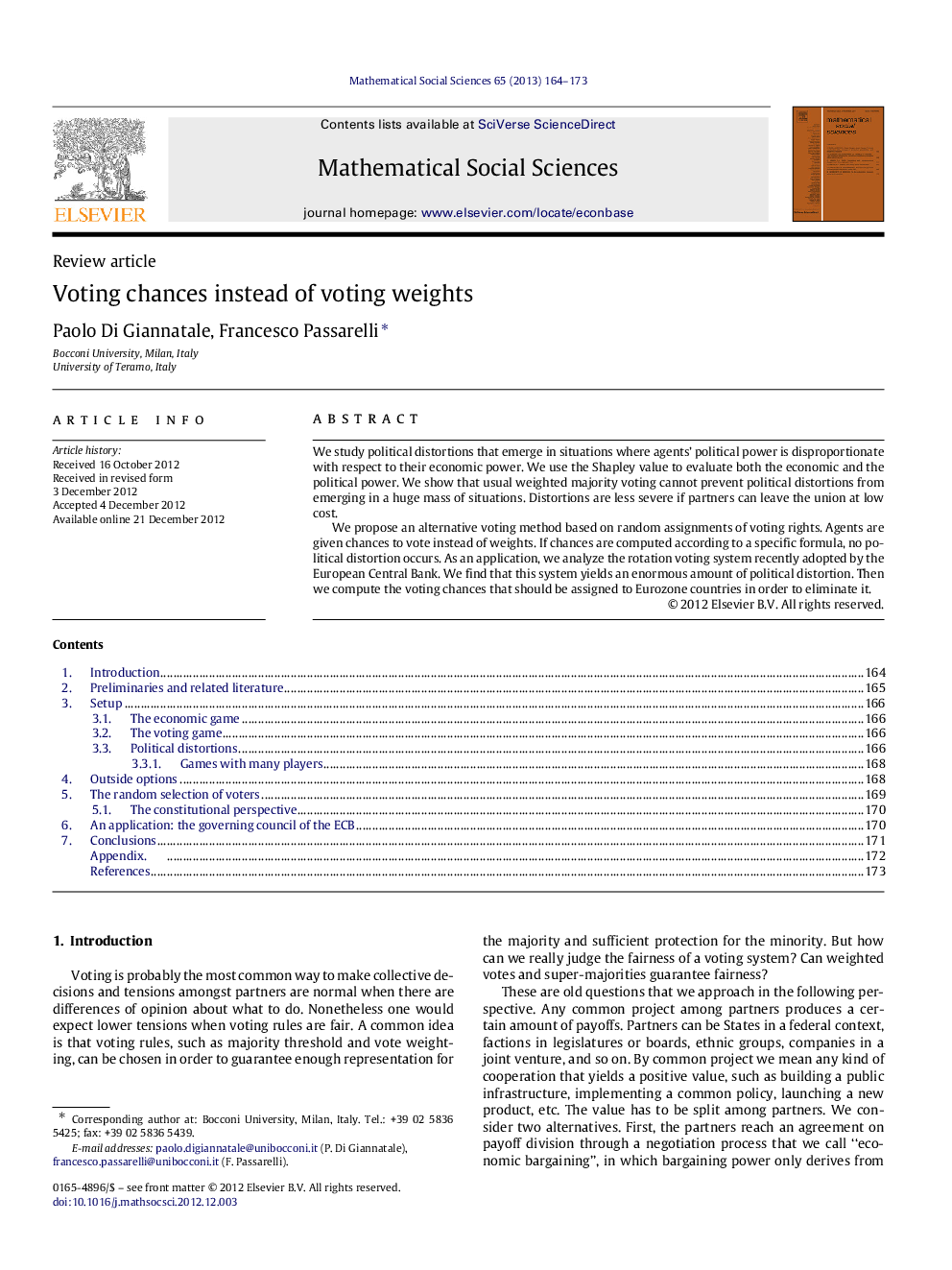| Article ID | Journal | Published Year | Pages | File Type |
|---|---|---|---|---|
| 972678 | Mathematical Social Sciences | 2013 | 10 Pages |
We study political distortions that emerge in situations where agents’ political power is disproportionate with respect to their economic power. We use the Shapley value to evaluate both the economic and the political power. We show that usual weighted majority voting cannot prevent political distortions from emerging in a huge mass of situations. Distortions are less severe if partners can leave the union at low cost.We propose an alternative voting method based on random assignments of voting rights. Agents are given chances to vote instead of weights. If chances are computed according to a specific formula, no political distortion occurs. As an application, we analyze the rotation voting system recently adopted by the European Central Bank. We find that this system yields an enormous amount of political distortion. Then we compute the voting chances that should be assigned to Eurozone countries in order to eliminate it.
► We analyze disparity between political and economic power emerging from voting. ► Weighted voting is not able to cancel out this political distortion. ► Substituting voting weights with “chances to vote” solves the problem. ► A Random Selection Voting Rule is applied to the voting mechanism of the ECB.
